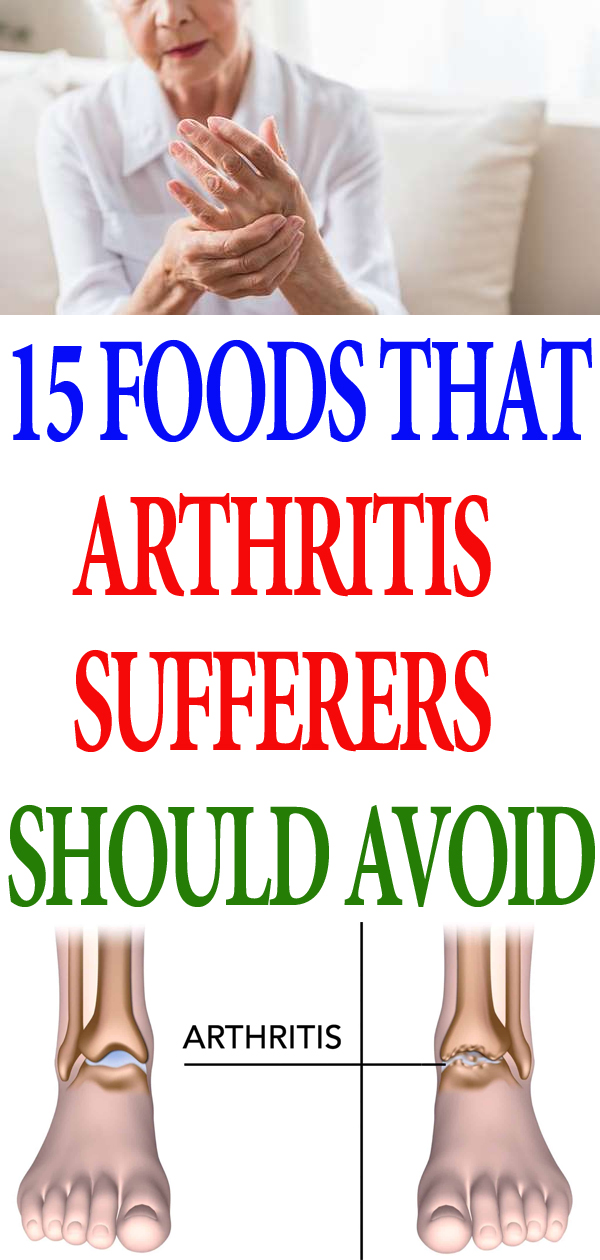If you suffer from arthritis, then you know the pain and tenderness that comes along with the condition. Fortunately, there are at-home remedies that can help alleviate your discomfort. One of the best ways to calm the pain is by eating a healthy diet of non-inflammatory foods.
Arthritis is a very common health condition, with over 3 million cases being reported in the US every year. This condition manifests by swelling and tenderness around your joints that typically worsens with age. The two most common types of the disease are rheumatoid and osteoarthritis. However, there are more than 100 types, including:
- Rheumatic Fever
- Inflammatory bowel disease (IBD)
- Gout
- Fibromyalgia
- Systemic Lupus Erythematosus
- Scleroderma
- Tendinitis
- Back pain
Osteoarthritis occurs when the cartilage in bones begins to break down, whereas rheumatoid X is a disease that occurs when the immune system attacks your joints. Treatment depends on the type of condition that you have, but the main focus of treatment is to alleviate symptoms and improve the quality of life.
A key part of treatment is preventing inflammation from flaring up, as more inflammation means more pain. What can you do? A great first step is to avoid whole foods that are scientifically linked to chronic inflammation, such as refined sugars and fried foods. Making simple changes to your diet can help relieve some health symptoms, like pain and swelling.
If you think you may suffer from arthritis, make sure you consult a healthcare professional to determine the best action plan for you. But if you’re ready to take back some control, keep reading for 15 foods you should always avoid.
Foods To Avoid When Coping With Arthritis Pain
1. High-Sodium Freezer Meals
Corticosteroids are a common treatment used to treat inflammation, and doctors often prescribe them for patients who have rheumatoid arthritis. These corticosteroids can cause your body to retain more salt. A regular intake of excess sodium can contribute to inflammation in the body. Experts recommend limiting your daily intake of sodium to 1,500 milligrams.
2. Soda
Sugar connects back to inflammation in the body, and research shows that sodas sweetened with sugar link to an increase in arthritic symptoms in women. A study revealed that consuming a single sugary soda a day increases the risk of developing rheumatoid arthritis by a whopping 63 percent. Most sodas have a high sugar content that exceedingly surpasses the recommended daily amount.
3. Sugary Fruit Juice
If sugary sodas are bad for you, then that means that sugary fruit juices are also just as bad. Fruit juices that have a high sugar content are key drivers for inflammation. Chronic pain and fibromyalgia are substantially affected by the microglial activation and central sensitization process. Sugar is a key driver in facilitating this process, all of which substantially amplifies arthritic pain.
4. Ice Cream
Ice cream contains saturated fats and added sugars, which is the perfect mixture for inflammation. Saturated fats are one of the biggest culprits of inducing inflammation. However, evidence from a rat study indicates that casein, the primary protein found in dairy foods, can potentially minimize swelling by quelling inflammation. The only way to know how dairy is affecting you is to experiment by cutting it out of your diet. If your symptoms do not improve, then maybe a scoop or two will not hurt.
5. Baked Goods
Speaking of desserts, baked goods that contain partially hydrogenated oil are a group of foods that anyone suffering from inflammation in the body must avoid at all costs. Partially hydrogenated oil contains trans fats – an ingredient that you should always avoid. Trans fats can trigger inflammation and regular consumption of trans fats:
- Increases “bad” LDL cholesterol
- Lowers “good” HDL cholesterol
- Increases the risk of developing heart disease
6. Margarine
Since we’re talking about trans fats, it’s important to note that margarine, your favorite butter substitute, is also a no-no. Margarine is typically made from trans fats, which are associated with heart disease, cancer, and inflammation. This group of foods also includes vegetable oils, which undergo a hydrogenation process that changes its chemical properties.
7. Polyunsaturated Cooking Oil
Polyunsaturated cooking oils, such as soybean, safflower, corn, sunflower, and canola oil, are commonly found in restaurants and homes. These cooking oils are rich in omega-6 fatty acids but lack omega-3 fatty acids. Most adults do not ingest enough whole foods that contain omega-3s, and an imbalance of these acids can cause inflammation, which can worsen symptoms of pain and inflammation throughout the body.
8. Fried Foods
As a general health rule, you should stay away from fried foods. This advice is because fried foods are often fried in oils that are rich in omega-6 fatty acids, which disturbs the balance of omega-6 and omega-3 fatty acids in the body. This addition to your diet can cause more inflammation to occur and worsen arthritis symptoms.
9. Full-Fat Cheeses
Cheese is one of America’s most prized ingredients. But before you indulge in a bowl of your favorite four cheese tortellini, it is important to remember that most cheeses load you up with saturated fats. These fats are scientifically proven to be a trigger for inflammation in the body.
10. White Flour
A study found in The Journal of Nutrition revealed that white flour is a huge driver for inflammation. It can emphasize omega-3 fatty acid deficiency in the body, which significantly impacts inflammation in the joints by subduing prostaglandin E3. Omega-3s are important for preventing diabetes and heart diseases, protecting your brain, and combatting inflammation.
7. Polyunsaturated Cooking Oil
Polyunsaturated cooking oils, such as soybean, safflower, corn, sunflower, and canola oil, are commonly found in restaurants and homes. These cooking oils are rich in omega-6 fatty acids but lack omega-3 fatty acids. Most adults do not ingest enough whole foods that contain omega-3s, and an imbalance of these acids can cause inflammation, which can worsen symptoms of pain and inflammation throughout the body.
8. Fried Foods
As a general health rule, you should stay away from fried foods. This advice is because fried foods are often fried in oils that are rich in omega-6 fatty acids, which disturbs the balance of omega-6 and omega-3 fatty acids in the body. This addition to your diet can cause more inflammation to occur and worsen arthritis symptoms.
9. Full-Fat Cheeses
Cheese is one of America’s most prized ingredients. But before you indulge in a bowl of your favorite four cheese tortellini, it is important to remember that most cheeses load you up with saturated fats. These fats are scientifically proven to be a trigger for inflammation in the body.
10. White Flour
A study found in The Journal of Nutrition revealed that white flour is a huge driver for inflammation. It can emphasize omega-3 fatty acid deficiency in the body, which significantly impacts inflammation in the joints by subduing prostaglandin E3. Omega-3s are important for preventing diabetes and heart diseases, protecting your brain, and combatting inflammation.
15. SAUSAGES (AND OTHER PROCESSED MEATS)
Processed foods are usually advised against due to their high salt and fat content. Processed meats are rich in advanced glycation end products (AGEs), which are triggers for inflammation and can worsen your symptoms. AGEs are present in every type of meat, but there are higher concentrations of AGEs in processed meats. So if sausages are a must-have in your meal plan, look for organic or all-natural products.
Final Thoughts On Avoiding Inflammatory Foods To Calm Your Arthritis Pain
What a list, right? As more people aim to become more health-conscious, it is important to pay attention to the foods that we eat. Everything that you ingest affects you and your body, whether it is positive or negative.
It may seem as though you are giving up all of your favorite foods (because how can anyone say no to a slice of pizza?). However, these things tend to become less important as your body begins to feel better over time. Plus, who said you have to give everything up forever? A scoop of ice cream or a slice of pizza is okay in moderation, but they should not be staples in your diet – especially if you are suffering from chronic pain and inflammation.
Inflammation is a common symptom of several diseases. Therefore, the severity of pain caused by inflammation depends on several factors, and the lifestyle choices you make are one of the largest contributors. To combat chronic pain and inflammation, avoid foods that are high in sodium, sugar, or trans fats. Instead, opt for whole fiber-rich foods like whole oats, fruits, and organic meats.
Making simple changes to your diet can have a significant impact on your well-being and overall quality of life. Additionally, by avoiding these trigger foods, the severity of your arthritis symptoms could lessen, and your life will become yours again.


